More shellfish washed up on Saltburn beach after die-off
- Published
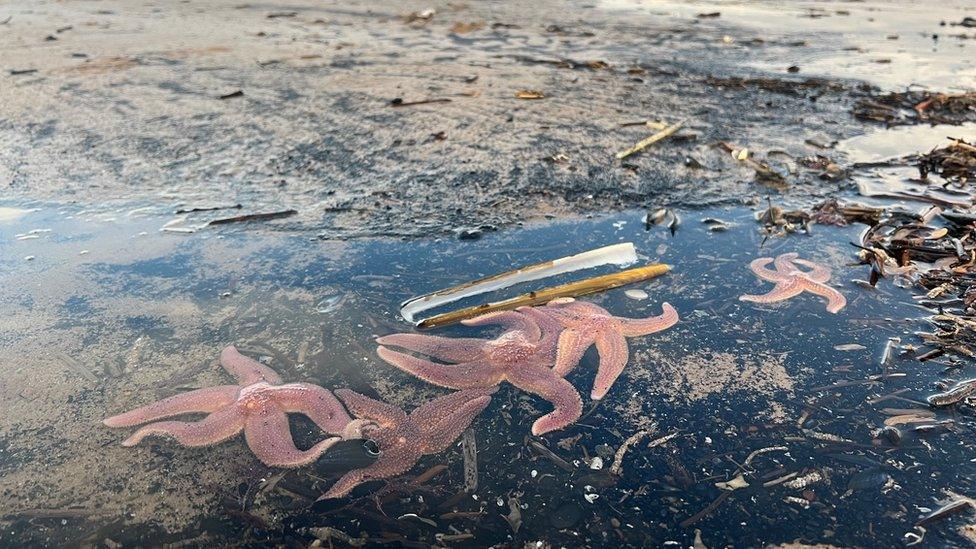
Barely moving starfish were spotted on the beach
Thousands more dead and dying shellfish have been washed up on a beach on a stretch of coast where there has been a mass crustacean die-off.
The dead mussels, crabs, razor clams and starfish have been seen on the sands at Saltburn-by-the-Sea, south of the River Tees.
Stuart Marshall, who owns a nearby beach hut, said it was "devastating"
The Environment Agency (EA) said it was caused by the weather and high tides and was normal for the time of year.
But Mr Marshall, 58, said a large deposit of black debris had just arrived on the tide and was not normal.
"We do get bits of coal from time to time but not anything like this," he said.
He also questioned rough seas had killed the creatures, saying the waters had been calm.
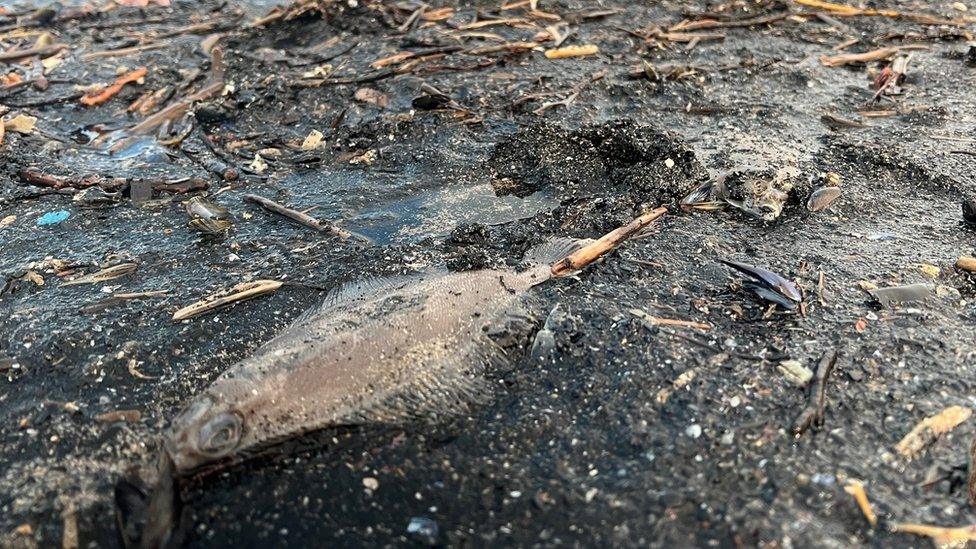
The Environment Agency said some young fish were vulnerable to being stranded on beaches like Saltburn's
Helen Whitworth, from Northallerton, North Yorkshire, also said the black deposit was unexpected.
"This black area is not usually here - usually it's a really beautiful beach," she said.
Thousands of dead crustaceans washed up between Hartlepool and Whitby in 2021.
Fishermen have claimed the previous deaths were linked to the dredging of the River Tees but a panel of experts said a disease or parasite new to UK waters may have been responsible.
But the panel said it was "unable to identify a clear and convincing single cause for the unusual crustacean mortality".
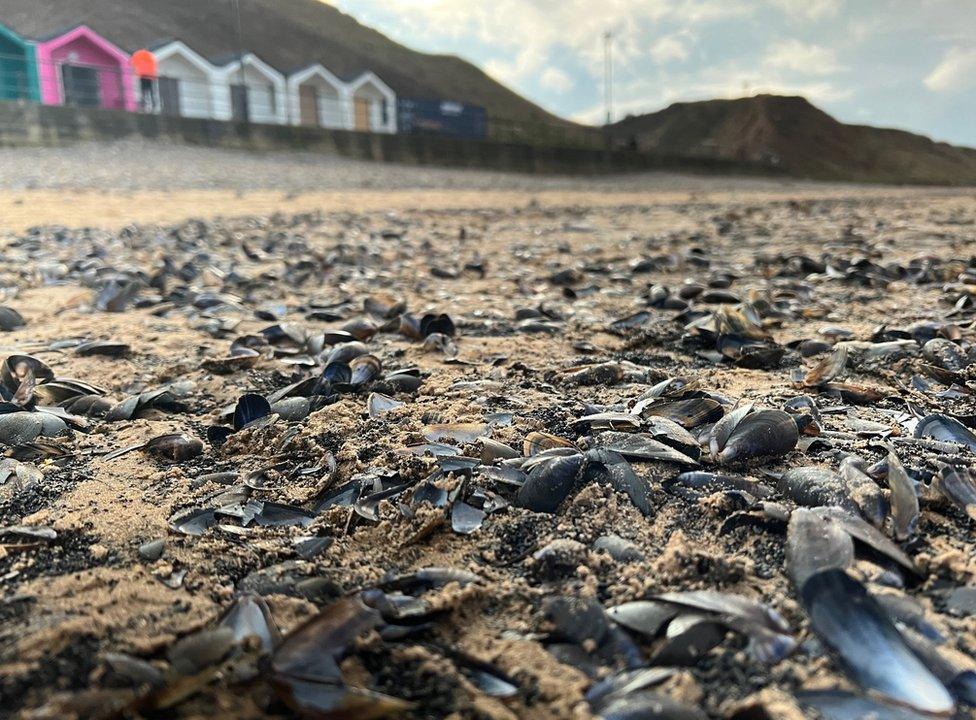
Mussels are easily dislodged during storms, the Environment Agency said
The EA said the recently arrived black substance was coal deposit "which is not unusual for this stretch of coastline".
A spokesperson said: "While we know people are concerned, the combination of recent heavy swell, spring tides and onshore winds means natural wash ups will occur more often."
Starfish, razor clams and mussels were easily dislodged during storms and some young fish were vulnerable to being stranded on shallow gradient beaches such as Saltburn, the EA added.
Meanwhile, speaking in the Commons, shadow environment secretary Jim McMahon called on the environment secretary to meet concerned fishermen.
Mr McMahon told Therese Coffey "working people, grafters of this country, the foundation of our food security" were being ignored.
In a reference to Tees Valley Mayor Ben Houchen, who has rejected claims the die-offs were caused by dredging for the Teesside freeport, he said: "It is wrong that public figures instead of stepping up like true public servants are acting like Houchen's henchmen, pound shop goons closing down debate and legitimate challenge.
"Well it won't work, it is not going away."
Ms Coffey said Mr McMahon had "basically impugned the integrity of the chief scientific adviser of Defra" with his comments.
She said the issue was "very important" but she did not need to meet fishermen "because there has already been investigation into this".

Follow BBC North East & Cumbria on Twitter, external, Facebook, external and Instagram, external. Send your story ideas to northeastandcumbria@bbc.co.uk, external.
- Published24 February 2023
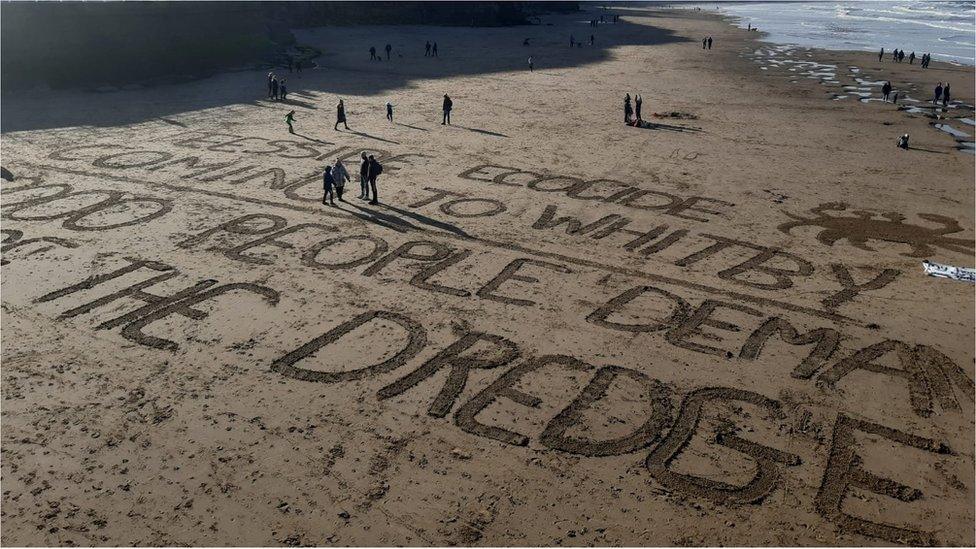
- Published20 January 2023
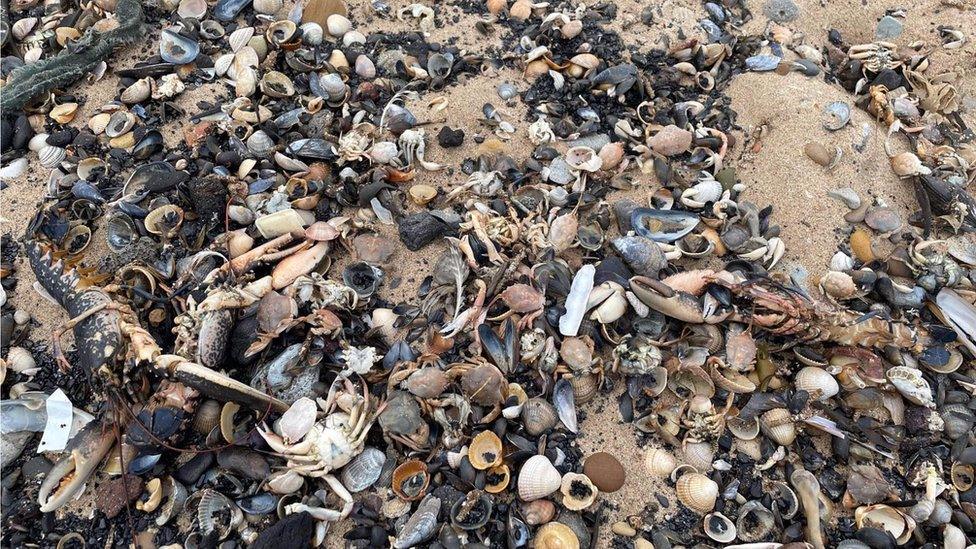
- Published12 January 2023
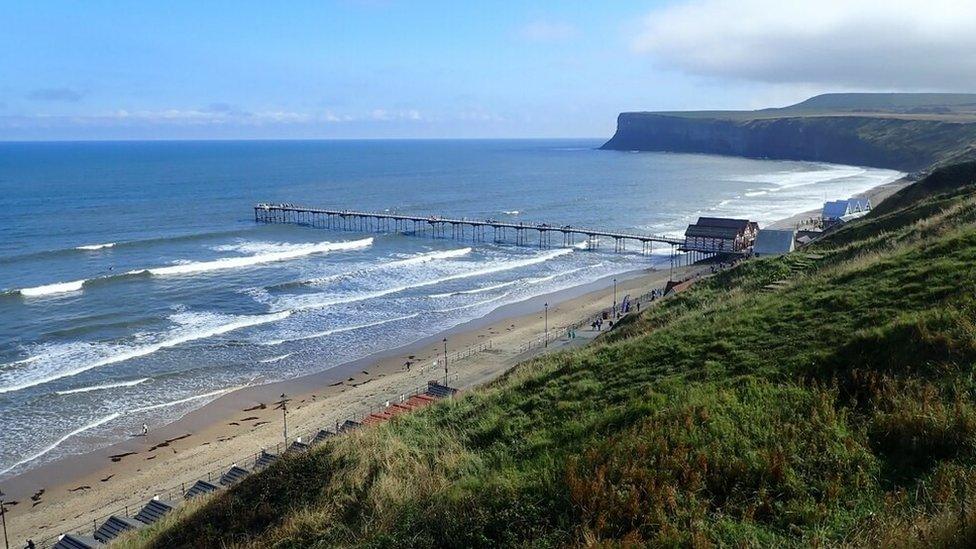
- Published15 January 2023
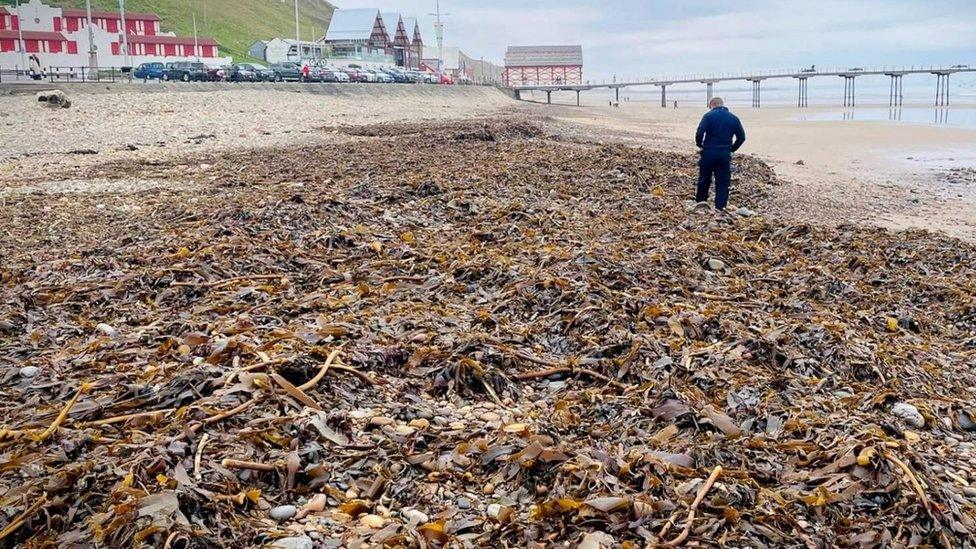
- Published11 January 2023
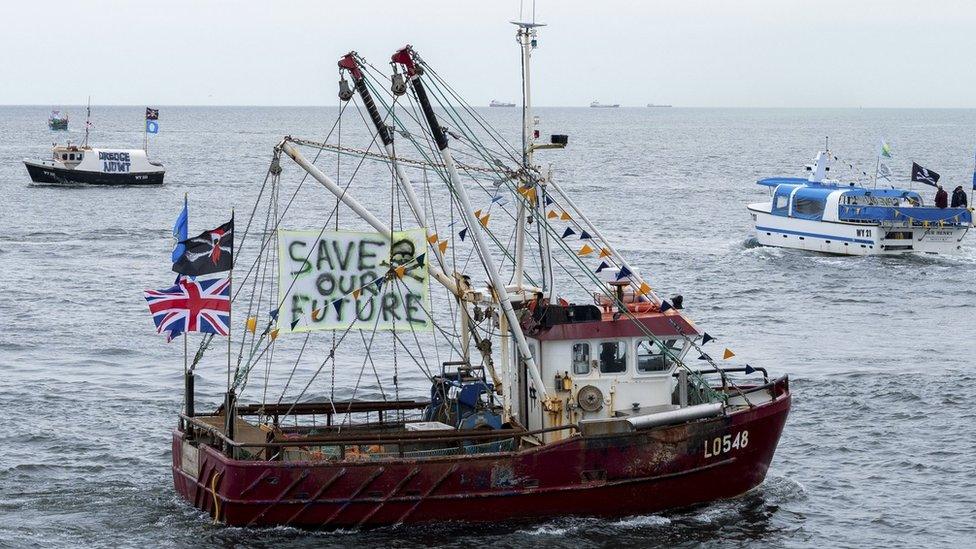
- Published13 December 2022
